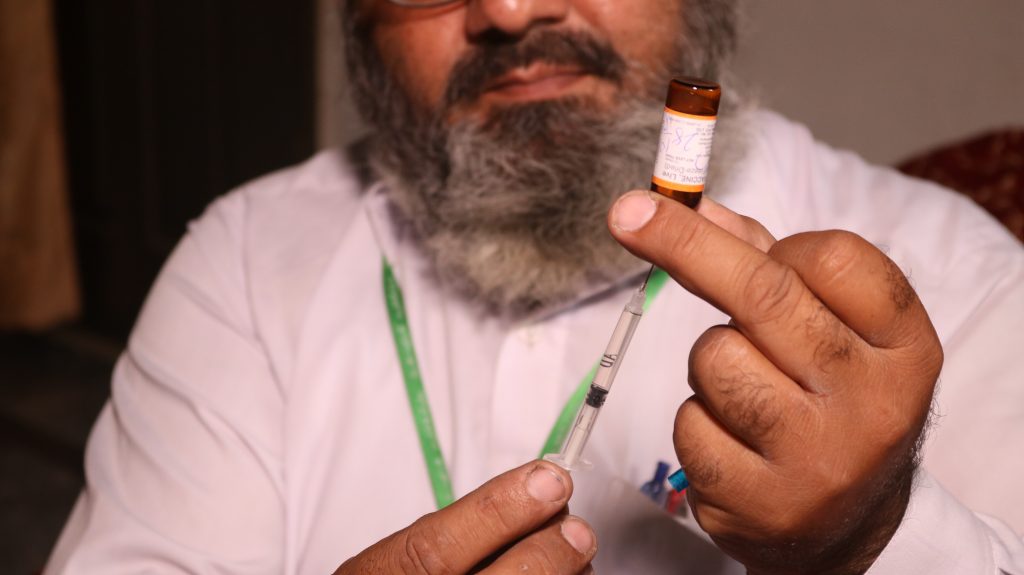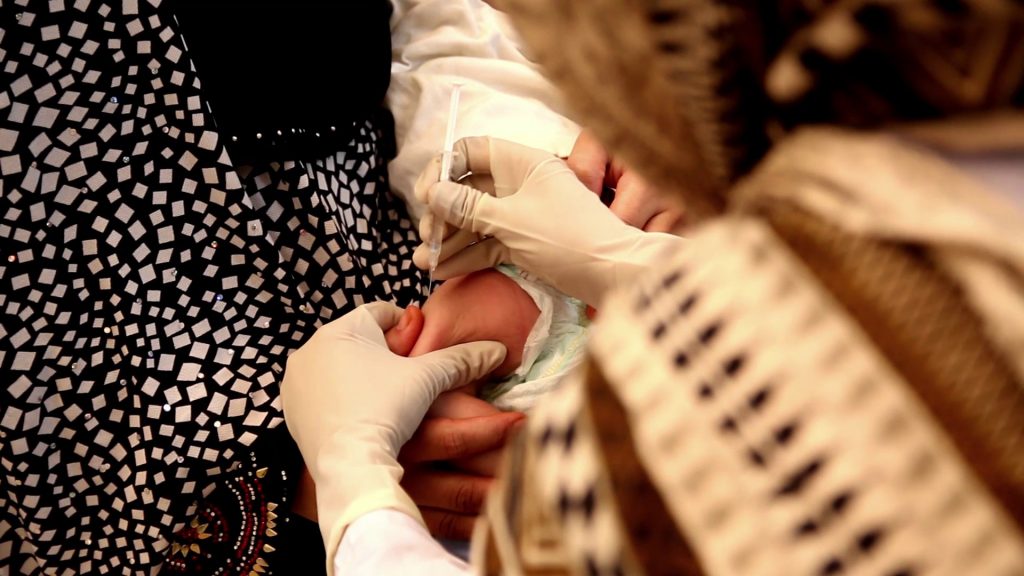Polio
Pakistan is among the three countries where Poliovirus continues to threaten the health and well-being of children. In 2014, the number of Polio cases in Pakistan prompted the International Health Regulations Emergency Committee to declare the condition a ‘public health emergency of international concern’. Therefore, in 2015, Injectable Polio Vaccine (IPV) was introduced as part of the routine immunization schedule.
The basic literacy rate of Pakistan is almost 60% contributing as a major factor to the vaccine hesitancy. There is also a widespread misconception about the vaccination courses among some communities that they can harm or sterilize children, or contain monkey- or pig-derived products which are forbidden in Islam. To address this misconception, we approached religious leaders so they can guide parents and the general population.
Therefore, an extensive approach was required to tap the consciousness of people from all segments of society. We designed our communication strategy following the goals set by the Global Polio Eradication Initiative (GPEI).
Our first approach was to educate and train doctors and health professionals about the injectable polio vaccine. For this purpose, seminar and lectures were organized in hospitals and medical colleges.
Our next step was to guide vaccinators and lady health workers to ensure the dose in a regular immunization course. Lady health workers were trained to use effective communication strategies to convince parents about injectable polio vaccines.
Parental refusal is a significant hindrance to the vaccination campaign due to misconceptions regarding the purpose or effectiveness of immunization. Documentaries in local languages were produced to reach maximum people for guiding them about the purpose and effectiveness of polio injection. The message was disseminated in local languages to increase impact.
Pakistan has extended family networks and mothers face an issue of consent from family and community elders before the vaccination process. Therefore, our strategy involved reaching out to community elders as well as parents. Seminars and events focusing on the importance and effectiveness of polio vaccines were organized in rural health centers, basic health units, schools and other community centers. The seminars invited local community motivators, political leaders and local artists to address the residents and endorse the polio eradication message.
The campaign successfully addressed the concerns of parents and raised awareness about the importance of Injectable Polio Vaccine (IPV) for a healthy future of their kids.



